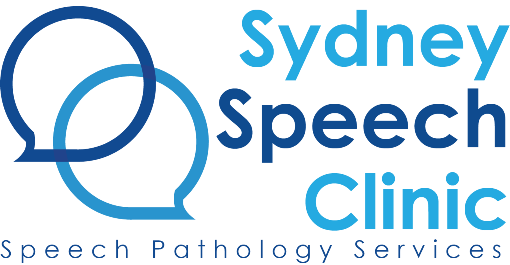In most cases assessment and therapy sessions take place in the clinic room with the therapist, child and parent (or caregiver) all present. Both parents are welcome and encouraged to attend so that everyone can understand the therapy process. Siblings are welcome too and can play in the waiting area if required.
Assessment
 In order to determine the best therapy plan for each child, a thorough assessment is required. Assessment sessions usually take between 60 and 90 minutes, although sometimes additional sessions are necessary to complete assessment tools. Depending on the age and needs of the client, informal and/or formal (standardised) assessments may be required to gain a full picture of a person’s communication strengths and weaknesses relative to age. Games and activities are frequently used in sessions to motivate and reward and to allow for play/brain breaks as required. Phone calls to other health and educational professionals may also be necessary to complete the assessment. A detailed written report will then be compiled from your case history information and our assessment. This report will be emailed within 3 weeks of the assessment. If appropriate, referrals to other professionals may also be recommended.
In order to determine the best therapy plan for each child, a thorough assessment is required. Assessment sessions usually take between 60 and 90 minutes, although sometimes additional sessions are necessary to complete assessment tools. Depending on the age and needs of the client, informal and/or formal (standardised) assessments may be required to gain a full picture of a person’s communication strengths and weaknesses relative to age. Games and activities are frequently used in sessions to motivate and reward and to allow for play/brain breaks as required. Phone calls to other health and educational professionals may also be necessary to complete the assessment. A detailed written report will then be compiled from your case history information and our assessment. This report will be emailed within 3 weeks of the assessment. If appropriate, referrals to other professionals may also be recommended.
Therapy
We aim to commence therapy as soon as possible and this is often achievable towards the end of an initial assessment session which enables you to go home and get to work on goals straight away. We will suggest an initial block of therapy and the length and frequency of this block will depend on many influencing factors. We aim to set realistic goals with you based on the concerns and also based on the realities of day to day life. We will be constantly reviewing your needs throughout therapy and update goals and therapy plans as needed. Therapy activities are designed to be fun and rewarding and we select games/resources that complement current interests. Children are often invited to choose preferred games giving them a feeling of control and independence which enhances motivation and participation.
Home Practice
Home practice is recommended for all clients and is the key to success! Many of the programs we implement achieve best results with family involvement by reinforcing goals outside of the therapy room. We lay the foundations in the clinic room and then regular practice and transfer of skills needs to happen in day to day ‘real’ life. Parent involvement in some programs such as the Lidcombe Program is critical as it is based on us teaching you how to carry out the therapy at home. However, we do understand the demands of everyday life, work, siblings, homework and other activities and will work with you to establish an achievable plan for home practice. In many cases the home practice can be incorporated into day to day activities, for example, practising auditory memory while out shopping or playing “I spy” for a target speech sound while walking to school. Your clinician will provide you with the appropriate advice, ideas, handouts, pictures and workbooks each visit.
